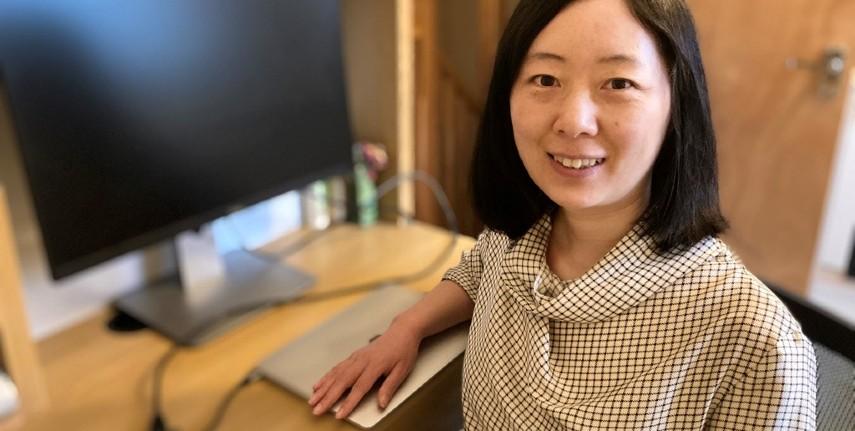
Submitted by K.L. Hlaba on Fri, 12/03/2021 - 11:12
To celebrate International Women's Day, and to honour the work that women in academia do to help make our world more food secure, we are profiling some of the brilliant female academics who work at/with the University of Cambridge. Economist Dr Lili Jia believes that shifitng to healthier diets has co-benefits for both human and natural health, and is interested in how to harness these co-benefits through transforming our food systems.
I studied for a PhD in economics, and my research investigated the role of farm structure in agricultural household production and consumption systems. After my PhD, I started transdisciplinary research focusing on optimising both materialised and non-materialised resources for improving human health and environmental sustainability.
While unhealthy diets have caused more than one quarter of the global population's obesity or overweight, a shift to healthier diets has co-benefits to both human and natural health. I am particularly interested in how to harness the co-benefits by transforming our food systems.
I think that the key is to integrate health and sustainability into economic systems. My current research shows that such integration can be achieved by developing real-time intervention systems to incentivise collaborations between consumers and food businesses along the supply chain. For example, I developed an incentive-based system and am designing a digital platform to motivate the prevention of food allergy recalls. This will contribute to the reduction of both food allergy incidents and food waste. My work is important to food security because it will help different stakeholders align their interests and actions with each other, to transform our food systems collaboratively toward health and sustainability.
When I was at secondary school, I read some scientists’ biographies which inspired me to become a researcher. I was especially encouraged by the tenacity and dedication of Marie Curie, the first female Nobel Prize laureate.
Since 2018, I have been acting as a Senior Treasurer for the Tzu Chi Cambridge Collegiate Society, which is comprised of a small group of young researchers, most of whom are women. I find that female researchers share many common puzzles. We support each other by sharing and discussing our experiences.
Transdisciplinary thinking is essential to my work. Our food systems are very complex, involving knowledge from many different disciplines, such as economics, psychology, management, food science, biology, ecology, engineering, computer science, data science, design, public health, nutrition, environmental science, and agriculture. I found that many complex problems can be solved by synthesising multiple disciplines together – like solving a jigsaw puzzle. During this process, I encountered three major challenges: first, different disciplines have different assumptions about human behaviour, and these assumptions are often inconsistent and hidden; second, it is not easy to identify a new research boundary since it is impossible to include all the disciplines; and third, it is time-consuming to synthesise disciplines that are not often linked, such as economics and engineering.
COVID-19 is a big challenge to everyone, particularly food businesses since they have to manage food supply even during the lockdowns. For this reason, I cancelled all the interviews and surveys with food businesses on my research project during the first lockdown. I really miss chatting with colleagues in person and working in the cosy University libraries, though.
Image: Dr Lili Jia in her home office. Image supplied by Lili.

